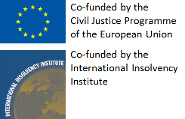Cross-border Insolvency Court-to-Court Cooperation Principles gain wide support
Over the past months regular updates have been provided on the work of the Leiden Turnaround, Rescue & Insolvency team (TRI Leiden) in creating EU Cross-Border Insolvency Court-to-Court Cooperation Principles. During the last week of January this project was finalised, resulting in 26 EU Cross-Border Insolvency Court-to-Court Cooperation Principles (‘EU JudgeCo Principles’) and 18 EU Cross-Border Insolvency Court-to-Court Communications Guidelines (‘EU JudgeCo Guidelines’). The EU JudgeCo Principles will strengthen efficient and effective communication between courts in EU Member States in insolvency cases with cross-border effects.
The EU Cross-Border Insolvency Court-to-Court Cooperation Principles are a sign of the time, in that they promote international cooperation in the area of insolvency, achieving greater and timely coordination among countries in multinational business reorganisations or restructurings. The EU JudgeCo Principles, in short, include principles on their non-binding status and their objectives, case management of courts and the equal treatment of creditors, and principles about the judicial decisions itself, on the reasoning and for instance on providing a stay or moratorium. Several principles relate to the course of the proceedings, such as notifications and authentication of documents, and principles on the outcome of judicial cooperation, for instance cross-border sales, assistance to a reorganisation or rules for binding creditors to an international reorganisation plan.
The EU JudgeCo Principles have been produced over a period of two years. I acted as principles drafter, assisted by prof. Paul Omar, Nottingham Law School, and in collaboration with experts, including 25 judges representing just as many different countries, chaired by prof. Ian F. Fletcher, University College London. The experts have been consulted intensively. Moreover, during training and discussion sessions over 100 judges tested their use in practice, with positive results. Insolvency judges understand the challenges international business is bringing to them and I am confident that the principles will significantly contribute to the architecture of European insolvency law and an efficient and trustworthy role of courts therein.
The EU JudgeCo Principles try to overcome present obstacles for courts in EU Member States such as formalistic and detailed national procedural law, concerns about a judge’s impartiality, uneasiness with the use of certain legal concepts and terms, and, evidently language. The results of the JudgeCo project further build on existing experience and tested resources, especially in cross-border cases in North America. The project was co-funded by the Civil Justice Programme of the European Union and the International Insolvency Institute (III). Presently, court-to-court communication between judges in insolvency matters in the EU is limited to only a few cases. In the near future judicial cooperation and communication will be a cornerstone in the efficient and effective administration of insolvency cases within the EU. Take for example the use of language. In which language will judges from courts in different states communicate? The JudgeCo Principles take a practical approach. In many international cases insolvency practitioners are the obvious persons to share information with each other and coordinate actions. When courts are involved, the insolvency practitioners and the courts should determine the language in which communications should take place with due regard to convenience and the reduction of costs. Notices should indicate their nature and significance in the languages that are likely to be understood by the recipients. Moreover, the Principles include a set of very practical EU JudgeCo Guidelines to facilitate communications in individual cross-border cases.
Evidently, the proof will be in the concrete use in practice of the EU JudgeCo Principles. When the amendments to the Insolvency Regulation will come into force, there will be a mandatory duty to cooperate for court in cross-border insolvency cases. The EU JudgeCo Principles will then certainly serve as a significant guide. The final text will soon be published, also on this website.

